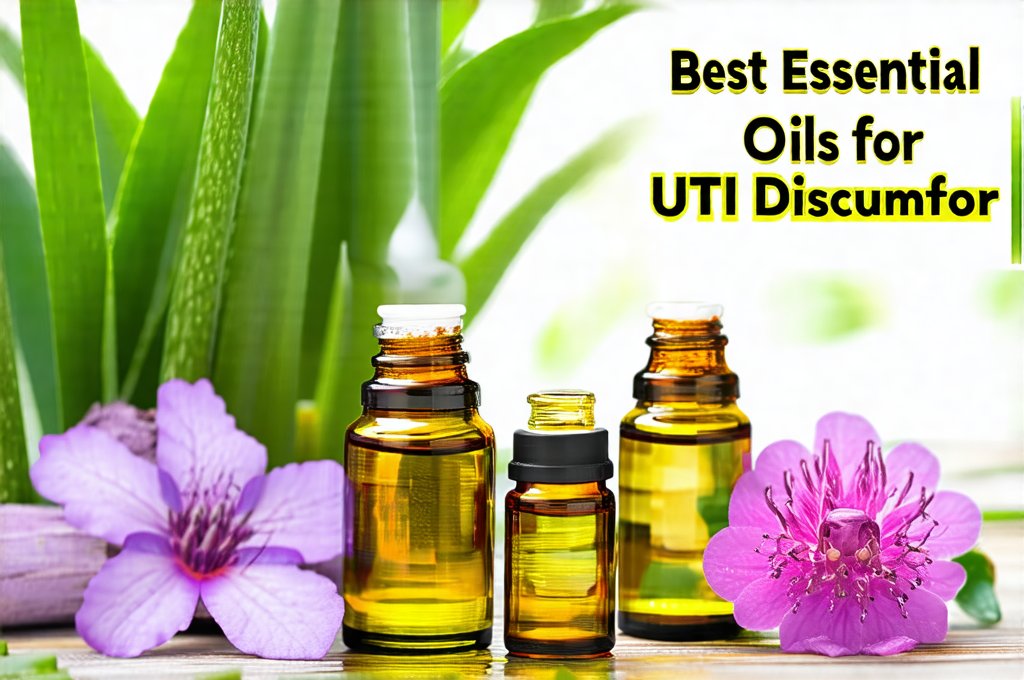Urinary tract infections (UTIs) are incredibly common, particularly among women, causing discomfort ranging from mild irritation to severe pain. While conventional medical treatment with antibiotics is usually necessary, many individuals seek complementary approaches to alleviate the unpleasant symptoms associated with UTIs and support overall urinary health. Essential oils, renowned for their therapeutic properties, have gained attention as a potential aid in managing UTI discomfort, though it’s crucial to understand they are not a replacement for professional medical care. This article will delve into some of the most promising essential oils that may help ease UTI symptoms, focusing on how they can be used safely and effectively alongside conventional treatment – always under the guidance of your healthcare provider.
It’s important to state upfront: UTIs require proper diagnosis and typically antibiotic intervention to eradicate the bacterial infection causing them. Essential oils should be viewed as supportive therapies aimed at relieving discomfort and promoting overall well-being, not as a cure for a UTI. Self-treating a UTI can lead to complications like kidney infections, so seeking medical attention is paramount. This exploration will focus on how certain essential oils may address symptoms such as inflammation, pain, and urinary frequency, offering potential relief while under the care of a healthcare professional. We’ll also discuss safe usage guidelines, dilution ratios, and important precautions. Considering adequate water intake is vital during recovery.
Understanding Essential Oils & UTI Support
Essential oils are highly concentrated plant extracts obtained through various methods like steam distillation or cold pressing. They contain volatile aromatic compounds believed to possess therapeutic properties. For UTI support, the focus isn’t on “curing” the infection itself (antibiotics are needed for that), but rather on harnessing the oils’ potential anti-inflammatory, analgesic (pain-relieving), and antiseptic qualities to ease accompanying symptoms. These oils can be incorporated into various applications like aromatherapy, topical dilutions with carrier oils, or – with extreme caution and under expert guidance – diluted internal use.
However, it’s vital to remember that essential oil safety is paramount. Never apply undiluted essential oils directly to the skin. Always dilute them in a suitable carrier oil (like coconut, jojoba, or almond oil) before topical application. Certain oils are contraindicated for pregnant or breastfeeding women, individuals with specific medical conditions, or those taking certain medications – so thorough research and professional advice are crucial. The goal is to complement, not replace, conventional treatment, enhancing comfort while addressing the underlying infection as directed by your physician. If experiencing significant discomfort, explore options for pain relief.
Top Essential Oils for UTI Discomfort Relief
Several essential oils have demonstrated properties that may be beneficial in alleviating UTI discomfort. Tea tree oil, known for its potent antiseptic and antimicrobial qualities, can help combat bacterial growth (though it won’t eradicate a full-blown infection). Lavender oil’s calming and anti-inflammatory effects can soothe irritation and reduce pain. Peppermint oil provides analgesic relief and can ease muscle spasms associated with urinary frequency or discomfort. Other promising options include eucalyptus oil (for its anti-inflammatory properties), rosemary oil (also antiseptic and stimulating circulation), and lemon oil (known for its cleansing and purifying qualities).
It’s important to note that the effectiveness of essential oils varies from person to person, and proper dilution is crucial to prevent skin irritation or adverse reactions. When choosing an essential oil, opt for a reputable brand that provides GC/MS reports (Gas Chromatography-Mass Spectrometry) – these reports verify the purity and quality of the oil. Always perform a patch test before widespread topical application, applying a small diluted amount to a discreet area of skin to check for any allergic reaction. For those dealing with chronic discomfort, exploring prostatitis symptoms and potential essential oil support could be beneficial.
Safe Application Methods & Precautions
Choosing the right method of application is crucial for maximizing benefits while minimizing risks. Here are some safe ways to incorporate essential oils into your UTI discomfort management plan:
- Aromatic Diffusers: Inhaling diffused essential oils can provide soothing aromatherapy, promoting relaxation and easing mental stress associated with UTI symptoms. Use a diffuser according to the manufacturer’s instructions, and limit diffusion sessions to 30-60 minutes at a time.
- Topical Application (Diluted): Diluting essential oils in a carrier oil is essential for safe topical use. A general guideline is 1-3% dilution – typically 3-9 drops of essential oil per ounce of carrier oil. Apply diluted oil to the lower abdomen, back, or soles of the feet. Avoid applying to sensitive areas or broken skin.
- Sitz Bath: Adding a few drops (2-4) of essential oils like lavender or chamomile to a warm sitz bath can soothe irritated tissues and provide relief from discomfort. Ensure proper dilution in a carrier oil before adding to the water. Never add undiluted essential oils directly to bathwater.
- Hydration & Diet: While not directly related to application methods, maintaining adequate hydration and consuming a healthy diet rich in antioxidants can support overall urinary health and enhance the effectiveness of supportive therapies. Consider underwear material as part of preventative measures.
Important Precautions:
- Avoid Internal Use Without Expert Guidance: Ingesting essential oils should only be done under the strict supervision of a qualified aromatherapist or healthcare professional. Many essential oils are toxic when ingested, and improper use can lead to serious health complications.
- Pregnancy & Breastfeeding: Certain essential oils are contraindicated during pregnancy and breastfeeding. Consult with your doctor before using any essential oils if you are pregnant or nursing.
- Medical Conditions & Medications: Individuals with pre-existing medical conditions (like asthma, epilepsy, or kidney disease) or those taking medications should consult their healthcare provider before using essential oils.
- Allergic Reactions: Always perform a patch test to check for allergic reactions. Discontinue use immediately if any irritation occurs.
In conclusion, while essential oils offer potential relief from UTI discomfort, they are not a substitute for medical treatment. They represent a complementary approach that can enhance well-being and ease symptoms when used safely and responsibly under the guidance of a healthcare professional. Remember to prioritize proper diagnosis, antibiotic treatment as prescribed by your doctor, and diligent adherence to safety guidelines when incorporating essential oils into your self-care routine. When discomfort disrupts sleep, exploring UTI relief at night can be helpful.





















